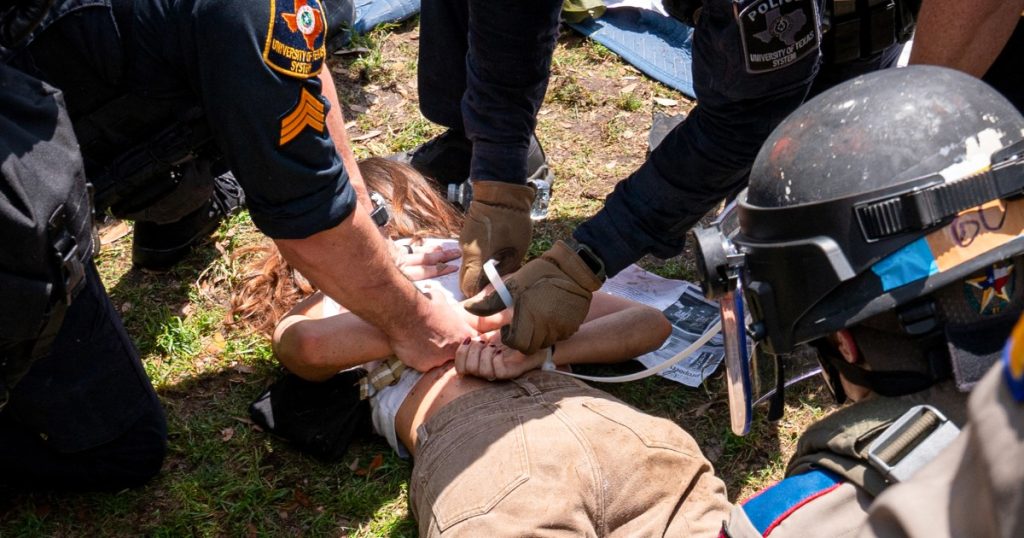In the past three weeks, clashes between police officers and pro-Palestinian protesters on college campuses have garnered national attention, highlighting the contentious debate over Israel’s actions in Gaza and sparking debates on law enforcement tactics and modern-day campus activism. More than 2,000 people have been arrested across the U.S. during demonstrations, with arrests occurring at universities ranging from Ivy League institutions in the Northeast to state schools in the South and Midwest. The protests have led to chaotic and divisive incidents on campuses, with Jewish and Muslim students expressing concerns over rising antisemitism and Islamophobia during the Israel-Hamas conflict. Law enforcement responses to these protests have been intense and sparked criticism from protesters and activists.
The wave of arrests at various campuses has prompted discussions about how universities, police departments, and city leaders should balance enforcement of laws with upholding the right to free speech and peaceful assembly. Many university leaders have defended their decisions to call in law enforcement when protesters engage in trespassing or disorderly conduct. However, the intensity of some police responses, such as in Austin and Madison, has led to claims of excessive force and mistreatment of protesters. The arrests have included current and former students, as well as unaffiliated parties, further complicating the situation on college campuses nationwide.
In some instances, faculty members have also been caught up in the arrests, including Noelle McAfee, the chair of the philosophy department at Emory University, who was charged with disorderly conduct after observing a pro-Palestinian protest. McAfee criticized Emory’s decision to bring in local law enforcement to break up the encampment, and her arrest was captured on video and widely circulated on social media. President Joe Biden emphasized the importance of upholding both the right to free speech and the rule of law in response to the protests, but the ongoing unrest and arrests suggest that tensions between protesters and law enforcement are still high.
Despite facing arrests and opposition, protesters like Arwyn Heilrayne, a freshman at the University of Texas at Austin, expressed their determination to continue advocating for Palestinian rights. Heilrayne emphasized the importance of supporting Palestinian students and standing up against injustice, even in the face of law enforcement presence on campus. The clashes between police and pro-Palestinian protesters have raised important questions about the limits of free speech, the proper role of law enforcement on college campuses, and how universities can navigate complex political and social issues while ensuring the safety and well-being of their students and faculty.


